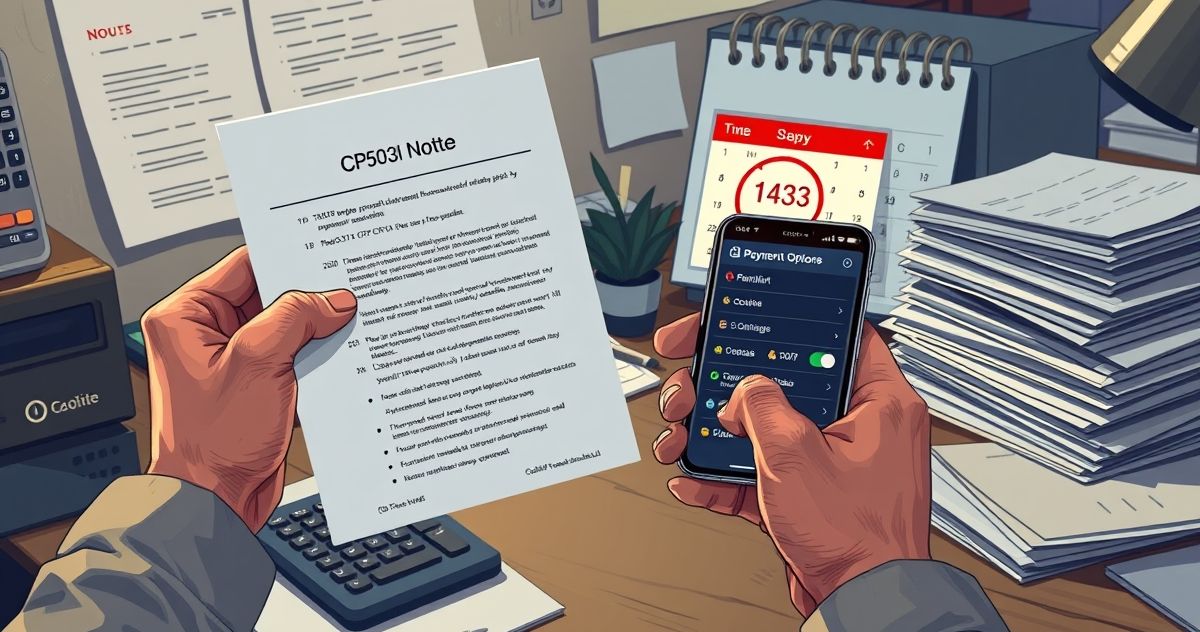Understanding the CP503I Reminder
The CP503I Reminder is a crucial notice issued by the Internal Revenue Service (IRS) to remind taxpayers of an outstanding balance that has not been paid after the first notice, the CP501. This reminder serves as an early warning that further actions may be taken if the owed amount isn’t addressed promptly. The primary purpose of the CP503I Notice is to urge taxpayers to pay their outstanding debts in order to avoid escalation of penalties and potential collection actions by the IRS.
What it is and Primary Purpose
At its core, the CP503I Reminder is a follow-up notification to alert taxpayers that they still have unpaid taxes, and it serves as an effort to encourage payment before the IRS considers more aggressive collection measures. The IRS sends this notice when there has been no response, or only a partial payment has been made in response to previous reminders. The intent is to provide taxpayers with a clear and urgent indication of their outstanding tax obligations, and to guide them towards timely compliance.
Key Features or Components of the CP503I Reminder
- Outstanding Balance Details: The notice clearly outlines the specific amount due, including any penalties and interest that have accumulated since the initial notification.
- Payment Instructions: The CP503I provides taxpayers with detailed instructions on how to remit payment, including various approved methods such as electronic payments, checks, or money orders.
- Deadline for Payment: A specific deadline is given by which payment should be made to prevent further penalties and interest from accruing on the unpaid balance.
Relevant Filing or Compliance Requirements
Receiving a CP503I Reminder signifies that a taxpayer should quickly assess their financial situation and make arrangements to settle the outstanding balance. Compliance requires timely remittance of payment as per the instructions provided in the notice. Additionally, taxpayers should review recent correspondence with the IRS to understand if there were any errors or misunderstandings that might require clarification or adjustments to their account.
If taxpayers are unable to pay the full amount at once, they are encouraged to contact the IRS to discuss alternative payment arrangements, such as an installment agreement. This can be especially beneficial in preventing the accrual of further penalties and interest and in avoiding more severe collection actions.
Penalties or Consequences for Non-Compliance
Failing to respond to the CP503I Reminder can result in serious consequences, both in terms of financial penalties and enforced IRS actions. Some of these consequences include:
- Increased Penalties and Interest: Taxpayers who ignore the notice may find their debt rapidly increasing due to daily compounding interest and additional penalties.
- Possible Collection Actions: Non-compliance may trigger more aggressive IRS actions such as liens on property or levies on bank accounts and other assets.
- Credit Impacts: Outstanding tax debt, when unaddressed, can negatively affect a taxpayer’s credit score, leading to further financial complications.
Importance or Significance in Tax Resolution
The CP503I Reminder plays a pivotal role in the IRS’s step-by-step collection process and denotes a critical phase before more severe enforcement actions are taken. By heeding this reminder, taxpayers maintain a window of opportunity to address their balances through either full payment or credible alternative arrangements, such as installment agreements. It underscores the importance of proactive financial management and engagement with the IRS to avoid unnecessary financial hardships.
In summary, the CP503I Reminder should be treated with urgency due to the potential negative financial implications of non-compliance. Taxpayers who receive this notice should verify their tax obligations, consider their payment options, and take immediate steps to address any outstanding balances. By doing so, they can maintain compliance and avoid further escalation of penalties or harsh IRS collection actions, ultimately safeguarding their financial health.

